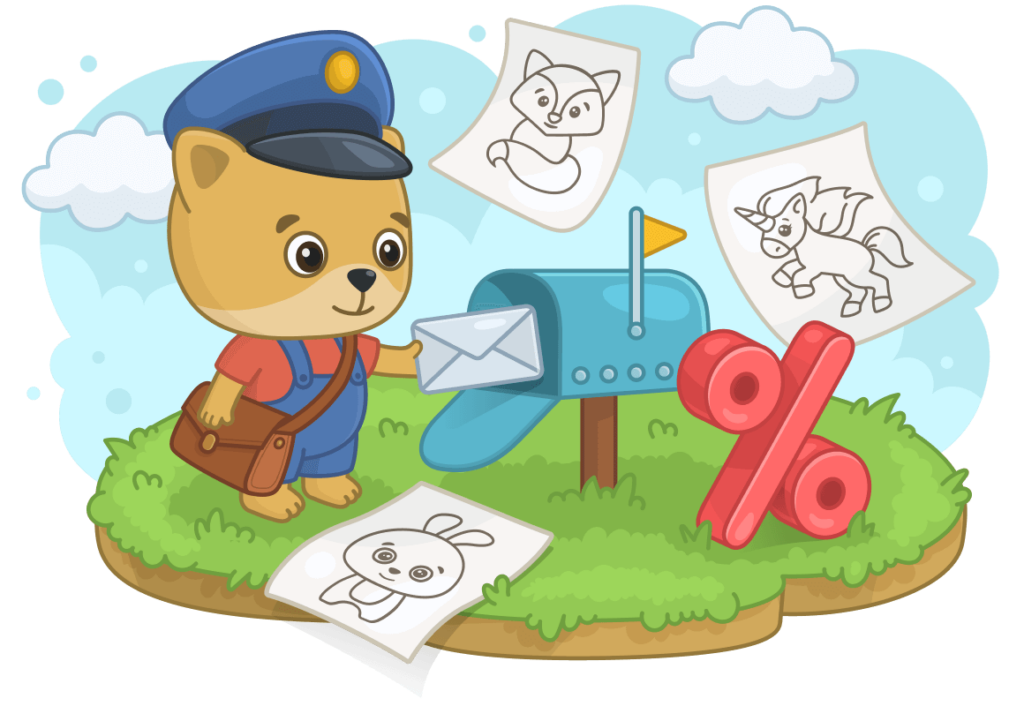We recently took our wild bunch of kiddos to Disney World for the first time! It was truly magical, yet truly crowded as well. Before we left, we knew one of the most important things to do was teach our children what to do if they were to get separated from us. And it’s not just at big places where it’s important, they also need to know what to do at the library, best friend’s birthday party, the grocery store or if they get separated from their class on a field trip. Here are some important tips to help teach your children what to do when they get lost so that everyone in your family can feel more empowered to handle the situation should it ever occur.
#1 Observation Station -Learn Your Location
As soon as you and your child arrive at an event, take a few minutes to go over the rules. Let your child know where you will be sitting, where the important people are located to ask for help in the event that they get lost; or pick a meeting place of where to go if you get separated. That way, everyone has a plan ahead of time and will feel more empowered should a separation occur.
#2 Freeze It
If your child does get separated from you, make sure that they stay in one place. Teach them to FREEZE and you will come back to get them. Moving children can make it hard to locate since they may wonder far away from their original starting spot. Having children learn to stay in place is a crucial step to helping find them quicker.
#3 Know the Facts and Scream Them
It’s imperative that you teach your children their name, your name, their telephone number and address. Then, if they get lost, have them freeze in place and scream for you. Some experts say screaming your actual name can help distinguish their cry from others and let you hear them faster. It will also help them explain to others who they are looking for and how to get in touch with you the quickest way possible.

#4 Learn Who to Ask For Help
Research shows that it may be the easiest to tell a child to find a Mom with children to ask for help. They will be more inclined to calm your child and help seek out the best way to find you. You can also point out store employees or police officers, though your child may have a harder time finding them in a crowd. A mom is usually the closest and best bet.
#5 Plan Ahead Accordingly
When a child gets separated from their parent, it can be hard for them to concentrate on the facts even if they’ve had them memorized previously. To help, make sure to write your phone number on duct tape on the inside of their shirt or in their shoes and instruct your child to show a grown-up should they get lost from you. There are also tags you can buy for their school bookbag or identification necklaces and bracelets that they can wear.
#6 Practice! Practice! Practice!
Once you’ve put all the safety procedures in place and have instructed your child of what to do when they are lost, you need to review it in a role-play type situation. Make sure that you use positive language so as not to scare your child about the world around them but empower them to feel control in uncertain situations. Act out scenarios like “what if I’m over here and you get lost from me, what do you do” or remind them “If someone says to go with them to see a puppy or get ice cream, what do you say?” Children can easily forget over the years so it is something that needs to be practiced and repeated on a monthly basis. Your child will like to go over the scenarios and will learn best that way. Overall, it’s our job as parents to empower our children and teach them the importance of safety, especially in big crowds. You shouldn’t focus on scaring your children into not talking to strangers or they’ll be afraid to talk to even the sweet organ player at your church. Instead, instruct them that they should never, ever go somewhere or leave with someone without permission. Doing so will help give them a positive but realistic boundary as they learn, grow and explore the world around them. Preparation is key to handling situations where a child may become separated. Though it is every parent’s greatest fear, it can also be managed with a little work ahead of time and a little bit of reinforcement along the way. Start this crucial step of development today! About the Author: Tracy E. Brown is a journalist and educator with over 14 years of experience working in the field of Child Development. She is currently the Assistant Editor of Black Dress/Red Wagon Magazine in Atlanta, Ga. and previous Associate Editor at Pregnancy & Newborn Magazine. She previously taught preschool at the Goddard School in Farragut, Tennessee and taught Kindergarten for Dekalb County Schools in Atlanta. Other writing credits include the Green Building Research Institute, London’s facetheory.com, WBIR Channel 10 News, PBS, Duke University and American Airlines. She is also a mom to three adorable little ones.



